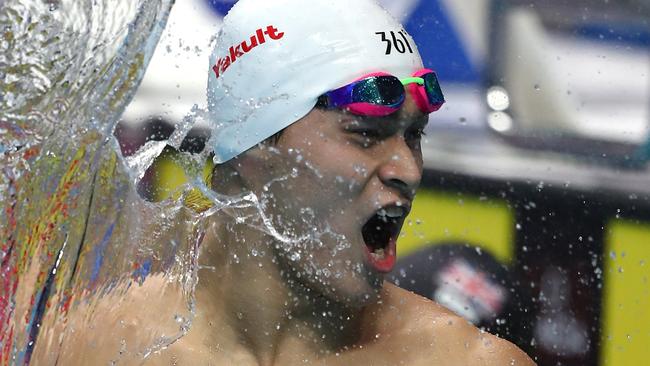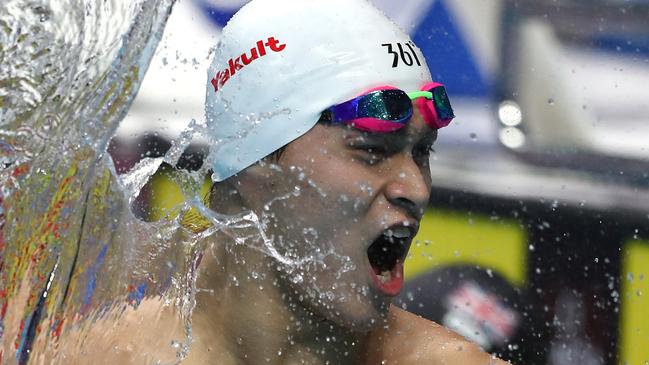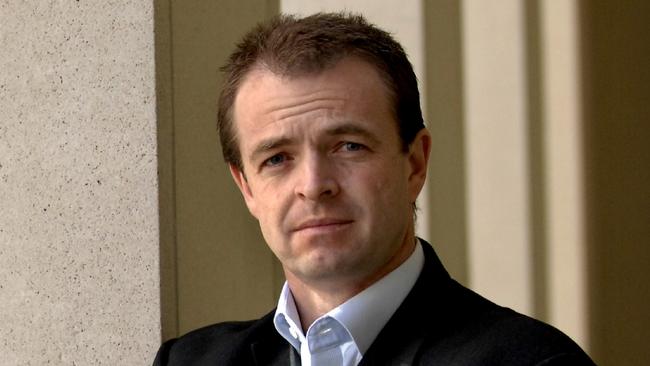Former ASADA chief Richard Ings calls for FINA findings into Sun Yang case to be released
The former head of Australia’s anti-doping agency has called on swimming’s world governing body FINA to come clean and explain why Sun Yang escaped suspension, following revelations he destroyed his own blood samples with a hammer.

Sport
Don't miss out on the headlines from Sport. Followed categories will be added to My News.
THE former head of Australia’s anti-doping agency has called on swimming’s world governing body FINA to come clean and explain exactly why Sun Yang escaped suspension, following revelations he destroyed his own blood samples with a hammer.
No stranger to doping scandals, swimming has been rocked by the latest explosive news that one of its biggest superstars was let off with a caution because of a technicality.
FINA has refused to publicly release its findings on the case after sources told The Daily Telegraph the hot-tempered Chinese superstar was warned his actions were “foolish” and the decision by the Doping Panel to find him not guilty of a violation was “a close-run thing”, but now the public wants answers.

“In accordance with FINA’s Anti-Doping Policy (FINA DC Rules 14.1.5 and 14.3.3) and the decision of the Doping Panel, FINA is not authorised to comment the case. Moreover, FINA will not consider further speculation and hearsay on this matter,” the sport’s body said.
The only way FINA can publicly release the case findings is if Sun agrees and Richard Ings, the former chief executive of the Australian Sports Anti Doping Authority, has urged him to do just that, considering the fact he was cleared of any wrongdoing so should have nothing to hide.
“Given that this matter is receiving wall-to-wall coverage in global sports media and given the high-profile nature of the athlete involved, I think it’s prudent for the recent decision of the final panel to be made public,” Ings said.
“This will require the approval of Sun Yang for the release of the recent decision which will go far to settling all the conjecture of the facts of this case.”

The case has already generated massive interest within swimming circles and the decision by FINA’S Doping Panel not to release the findings has done nothing to silence the demands for an explanation.
American Olympic breaststroke gold medallist Lilly King, who joined Australia’s Mack Horton in the athlete-driven fight against doping at the 2016 Rio Olympics by calling out her Russian rival Yulia Efimova, left no-one in any doubt about her thoughts on the decision by a posting a mocking tweet: “That’s not sketchy at all”.
The case may not be over yet as the findings have been sent to the World Anti-Doping Agency, which has 21 days to decide whether to lodge an appeal with the Court of Arbitration for Sport.
Athletes who are found guilty of refusing to submit to a doping test, or tampering with a sample, typically face lengthy bans of around two years for first time offenders, although there have been some rare cases when they have escaped any punishment, but only in extraordinary circumstances. Sun has already served a three-month doping ban after testing positive to a stimulant which he said was prescribed to him by a doctor to treat a heart problem.
Foxtel is your home for LIVE NBA, NBL & WNBL action. SIGN UP NOW!
